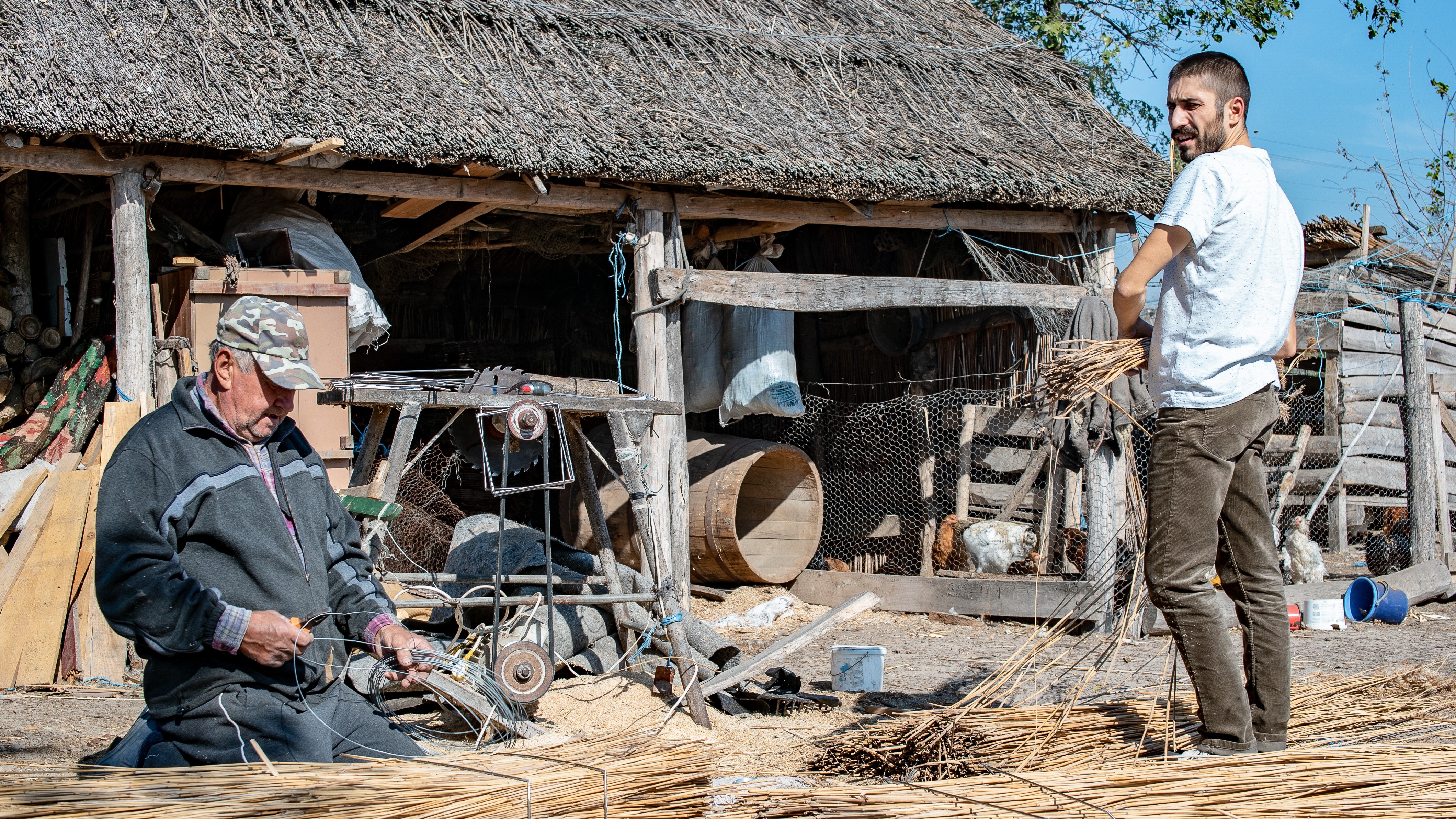“The crafts of Danube Delta may be extinct in some 20 years from now”
Oana Neneciu and Loredana Pană are the coordinators for DeltaCraft, a collaborative platform aimed at revitalizing traditional crafts in the Danube Delta area through collaboration between local artisans and contemporary designers.

Tell us about your work and practice.
DeltaCraft is a collaborative platform that aims to create connections and experiences between the Danube Delta crafts and contemporary design. Yearly, since 2015, we try to search for new collaborative methods between designers and crafts people from the Delta, to promote their work, the aesthetics, resources and deltaic communities. By now the platform has hosted over 20 crafts people from the Delta and Romanian designers and hopefully each of them was influenced by the DeltaCraft experience and used it in their own work contexts.
What are the main challenges in your work?
We try to define our perspective and try to find the best way to preserve heritage, but also to make it available for as many designers as we can. Considering that in Romania the market is very slow for crafts and designer objects and it actually is very hard to produce small series of objects for selling and for a sustainable growth, we are migrating towards learning programmes dedicated to designers and artists that want to experience the heritage and traditions and the way of living of Danube Delta communities. So our most important challenge is to find the best way of development for our DeltaCraft platform.
How do you think international collaboration will impact your work?
It may be a very interesting process to host international designers and gain some perspective for the crafts and ways of developing activities in Danube Delta.
Have you learned anything surprising about UK craft?
The level of engagement of UK designers in their work with crafts is amazing. It is also interesting to see new models of business development.
How do you see the future of craft in a post Covid-19 world?
In my mind the crafts of Danube Delta may be extinct in some 20 years from now. The crafts people are pretty old or, if not, very disappointed that they cannot sustain a way of living from their craft work. At the same time, the young designers are so interested in crafts and natural materials and they should be able to benefit from the experiences of crafts people. In my view, the best way to go forward is to create educational programmes for universities and local workshops for designers. Practical solutions for a post-Covid-19 world.
What advice would you give other craft practitioners who are trying to adapt?
Maybe the most precious element for creativity is time, so I guess it is a very good time to enjoy it!
Crafting Futures is a global British Council programme building a positive future by unlocking craft’s unique potential to inspire people around the globe. The programme celebrates the value of craft in our history, culture and world today.
Through making and international collaboration, Crafting Futures brings together craft practitioners, designers and organisations from around the world to explore possibilities for this future together.
Launched in Romania in 2020, Crafting Futures brings together six craft professionals from the United Kingdom and organisations, designers, artists and craftivists in Romania, aiming to support the development of shared learning and traditional, sustainable craft and design practice.
https://www.britishcouncil.ro/en/programmes/arts/crafting-futures
